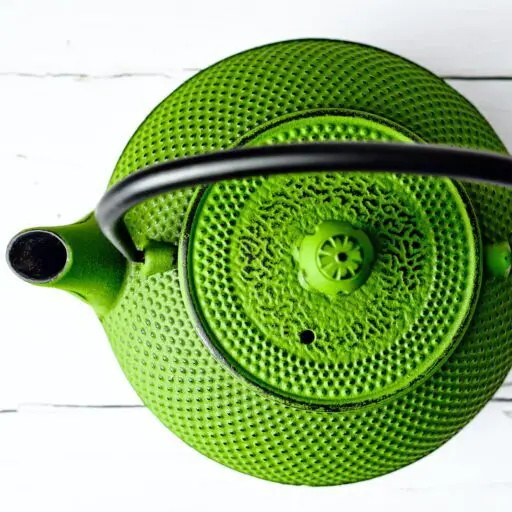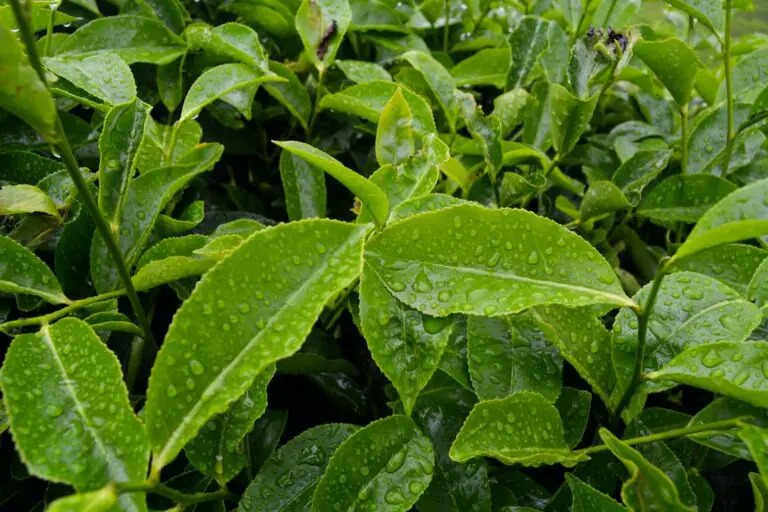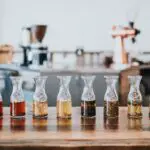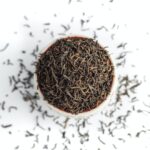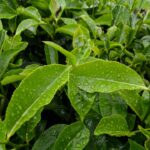Support our educational content for free when you purchase through links on our site. Learn more
Which Tea Bag Brands Offer the Healthiest Options? Top 10 in 2025 🍵
Are you sipping your daily tea with confidence, or unknowingly steeping a cocktail of microplastics and additives? At Tea Brands™, we’ve brewed, tasted, and tested dozens of tea bag brands to uncover which ones truly deliver on health, purity, and flavor. Spoiler alert: some popular commercial brands fall short, while others shine with organic leaves, plastic-free packaging, and antioxidant-rich blends.
Did you know that certain plastic tea bags release over 10 billion microplastic particles into your cup with every steep? 😱 That’s just one reason why choosing the right tea bag brand matters more than ever. Stick with us as we reveal the top 10 healthiest tea bag brands of 2025, share pro tips on avoiding harmful additives, and even teach you how to craft your own DIY blends at home. Ready to upgrade your tea ritual?
Key Takeaways
- Choose organic, plastic-free tea bags to avoid pesticides and microplastic contamination.
- Top brands like Pique Tea, Traditional Medicinals, Choice Organics, and Pukka Tea lead in purity, sustainability, and flavor.
- Loose leaf teas generally offer superior health benefits, but premium tea bags can be a convenient, healthy alternative.
- Herbal teas such as chamomile, ginger, and rooibos support immunity and digestion naturally.
- DIY tea blends let you customize health benefits and avoid additives completely.
👉 Shop the healthiest tea bags here:
- Pique Tea: Amazon | Official Site
- Traditional Medicinals: Amazon | Official Site
- Choice Organics: Amazon | Official Site
- Pukka Tea: Amazon | Official Site
Table of Contents
- ⚡️ Quick Tips and Facts About Healthy Tea Bags
- 🌿 The Leafy Legacy: How Tea Bags Became a Staple for Health
- 1. Top 10 Healthiest Tea Bag Brands You Can Trust
- 2. What Makes a Tea Bag Brand Truly Healthy? Key Ingredients and Packaging Insights
- 3. Pro Tip: Why You Should Toss Commercial Tea Bags and Opt for Loose Leaf or Organic Alternatives
- 4. Herbal Heroes: Best Tea Bags for Boosting Immunity and Digestion
- 5. Matcha Magic: Reasons to Start Drinking Matcha Tea Bags for a Health Kick
- 6. Sip Smart: Healthy Drinks That Improve Digestion and Wellness in 2025
- 7. Chill Out: Ways to Enjoy a Lighter, Refreshing Glass of Iced Tea with Healthy Tea Bags
- 8. Decoding Tea Labels: Organic, Fair Trade, and Non-GMO Certifications Explained
- 9. Environmental Impact: How Healthy Tea Brands Are Leading the Sustainability Charge
- 10. DIY Tea Blends: Crafting Your Own Healthy Tea Bags at Home
- Conclusion: Brewing Your Way to Health with the Best Tea Bags
- Recommended Links for Tea Lovers and Health Enthusiasts
- FAQ: Your Burning Questions About Healthy Tea Bags Answered
- Reference Links: Trusted Sources and Further Reading
⚡️ Quick Tips and Facts About Healthy Tea Bags
Welcome to the world of tea bags where health meets convenience! At Tea Brands™, we’ve sipped, savored, and scrutinized countless tea bags to bring you the ultimate guide on the healthiest options. Here’s a quick rundown before we dive deeper:
- ✅ Choose organic and non-GMO certified teas to avoid pesticides and synthetic additives.
- ✅ Avoid tea bags made with plastic or polypropylene—they can release microplastics into your brew.
- ✅ Loose leaf teas often offer better quality and health benefits than commercial tea bags.
- ✅ Watch out for “natural flavors” or “artificial flavorings”—these can mask low-quality leaves and introduce unwanted chemicals.
- ✅ Herbal teas like chamomile, rooibos, and ginger are fantastic for digestion and immunity.
- ✅ Matcha tea bags pack a powerful antioxidant punch but check for purity and origin.
Did you know? A 2019 study found that some plastic tea bags shed over 10 billion microplastic particles into your cup when steeped in hot water! (Source: Environmental Science & Technology) That’s a wake-up call for all tea lovers!
For a quick peek at the best tea bag brands, check out our related article on best tea bag brands.
🌿 The Leafy Legacy: How Tea Bags Became a Staple for Health
Tea’s journey from ancient Chinese dynasties to your morning cup is a tale steeped in culture, health, and innovation. The tea bag itself, invented in the early 1900s, revolutionized tea drinking by making it fast and fuss-free. But did convenience come at a cost?
Early tea bags were made from porous silk, then paper, and eventually plastic blends, which introduced concerns about toxins and microplastics. Meanwhile, tea’s health benefits — antioxidants, polyphenols, and calming compounds — remained a constant draw.
Over the decades, health-conscious consumers demanded cleaner, safer tea bags, prompting brands to innovate with organic leaves, biodegradable bags, and transparent sourcing. Today, tea bags can be both healthy and eco-friendly if you know what to look for.
Curious about which brands lead the pack? Keep reading!
1. Top 10 Healthiest Tea Bag Brands You Can Trust
Our expert tasters at Tea Brands™ have rated the top contenders on design, ingredient purity, packaging safety, and flavor. Here’s the scorecard:
| Brand | Design (1-10) | Ingredient Purity (1-10) | Packaging Safety (1-10) | Flavor (1-10) | Overall (1-10) |
|---|---|---|---|---|---|
| Pique Tea | 9 | 10 | 10 | 9 | 9.5 |
| Traditional Medicinals | 8 | 9 | 9 | 8 | 8.5 |
| Choice Organics | 8 | 9 | 10 | 8 | 8.5 |
| Pukka Tea | 9 | 9 | 10 | 8 | 8.5 |
| Numi Organic | 7 | 9 | 9 | 8 | 8.25 |
| Yogi Tea | 7 | 8 | 8 | 7 | 7.5 |
| The Republic of Tea | 7 | 7 | 8 | 7 | 7.25 |
| Rishi Tea | 7 | 8 | 8 | 7 | 7.5 |
| Celestial Seasonings | 5 | 5 | 5 | 6 | 5.25 |
| Lipton | 4 | 4 | 4 | 5 | 4.25 |
Pique Tea: The Gold Standard
Why we love it: Pique Tea uses a patented Cold Extraction Technology™ that preserves antioxidants and active compounds. Their tea bags are free from plastics and rigorously tested for heavy metals and pesticides. Plus, their matcha and oolong teas are crowd favorites.
Traditional Medicinals: Herbal Wellness Pioneer
Known for pure, organic herbal blends with plastic-free bags, this brand is a go-to for soothing chamomile and immune-boosting blends.
Choice Organics: Sustainability Meets Purity
Their hemp fiber and wood pulp bags are compostable, and their teas are USDA organic and Non-GMO Project verified. Rooibos and Moroccan Mint are standouts.
Pukka Tea: Organic and Artisanal
Pukka’s unique cotton-stitched bags avoid plastic and staples, and their blends like Manuka Honey and Vanilla are both tasty and toxin-free.
Want to explore these brands further?
👉 Shop these top healthy tea brands on:
- Pique Tea: Amazon | Pique Official Website
- Traditional Medicinals: Amazon | Traditional Medicinals Official
- Choice Organics: Amazon | Choice Organics Official
- Pukka Tea: Amazon | Pukka Official
2. What Makes a Tea Bag Brand Truly Healthy? Key Ingredients and Packaging Insights
Let’s break down the anatomy of a healthy tea bag:
Ingredients to Look For:
- 100% organic tea leaves or herbs with no synthetic pesticides.
- No artificial or “natural” flavorings—these can be misleading and contain processed chemicals.
- Single-ingredient or simple blends to avoid fillers and additives.
- Non-GMO certification to ensure purity.
Packaging Matters:
- Plastic-free bags made from hemp, corn starch, or unbleached paper.
- No staples, strings, or tags that contain metal or plastic.
- Biodegradable or compostable materials to reduce environmental impact.
Why It Matters:
Plastic tea bags can leach microplastics and endocrine disruptors into your tea, especially when steeped in hot water. (Source: Science Advances)
On the flip side, loose leaf teas offer superior quality and avoid packaging concerns altogether. But if you love the convenience of tea bags, choose brands that prioritize clean ingredients and safe packaging.
3. Pro Tip: Why You Should Toss Commercial Tea Bags and Opt for Loose Leaf or Organic Alternatives
Here’s a little secret from our tea tasters: commercial tea bags often contain “dust” or fannings — the leftover bits from tea processing that sacrifice flavor and health benefits.
The Case Against Commercial Tea Bags:
- Lower quality leaves mean fewer antioxidants and polyphenols.
- Plastic components in many bags release microplastics.
- Additives and flavorings can mask poor quality.
Why Loose Leaf Tea Rocks:
- Whole leaves retain full flavor and nutrients.
- You control the steeping time and strength.
- No plastic or questionable bag materials.
If you’re curious about how to brew loose leaf tea perfectly, check out our Tea Brand Guides for step-by-step instructions.
Still love tea bags? Opt for organic, plastic-free, and staple-free options from trusted brands like Pique or Pukka.
4. Herbal Heroes: Best Tea Bags for Boosting Immunity and Digestion
Herbal teas are nature’s medicine cabinet in a cup. Here are our top picks for immune-boosting and digestion-friendly tea bags:
| Herb | Health Benefit | Recommended Brand(s) |
|---|---|---|
| Chamomile | Calms digestion, reduces stress | Traditional Medicinals, Pukka |
| Ginger | Eases nausea, anti-inflammatory | Pique Tea, Yogi Tea |
| Peppermint | Soothes stomach, aids digestion | Choice Organics, Traditional Medicinals |
| Rooibos | Rich in antioxidants, caffeine-free | Choice Organics |
| Echinacea | Supports immune function | Pique Tea, Traditional Medicinals |
Our tasters love the soothing chamomile from Traditional Medicinals and the zesty ginger blends from Pique. These teas are free from additives and come in eco-friendly bags.
For more on herbal teas, explore our Herbal Tea category.
5. Matcha Magic: Reasons to Start Drinking Matcha Tea Bags for a Health Kick
Matcha is powdered green tea leaves, offering a concentrated source of antioxidants, caffeine, and L-theanine for calm focus. Here’s why matcha tea bags deserve a spot in your cupboard:
- Higher antioxidant levels than brewed green tea.
- Sustained energy boost without jitters.
- Supports metabolism and detoxification.
- Versatile for hot or iced drinks, lattes, and smoothies.
Our favorite matcha brand is Pique Tea’s Matcha Green Tea, which uses organic leaves and Cold Extraction Technology™ to preserve nutrients. It’s smooth, vibrant, and free from bitterness.
Try matcha tea bags if you want a quick, healthy, and delicious energy lift. For recipes and tips, visit our Specialty Blends section.
6. Sip Smart: Healthy Drinks That Improve Digestion and Wellness in 2025
Looking beyond tea bags, what other healthy drinks can complement your wellness routine? Here are some trending beverages for 2025 that pair well with your tea habit:
- Kombucha: Fermented tea rich in probiotics for gut health.
- Golden Milk: Turmeric and ginger-infused milk for anti-inflammatory benefits.
- Herbal Infusions: Blends like fennel, licorice root, and dandelion for digestion.
- Coconut Water: Hydrating and packed with electrolytes.
Incorporating these with your favorite healthy tea bags can create a balanced and flavorful hydration plan.
7. Chill Out: Ways to Enjoy a Lighter, Refreshing Glass of Iced Tea with Healthy Tea Bags
Iced tea lovers, rejoice! Healthy tea bags can make your summer sips both delicious and nutritious. Here’s how to brew the perfect iced tea:
- Brew double strength tea using organic, plastic-free tea bags (e.g., Pukka or Choice Organics).
- Steep for 5 minutes to extract full flavor.
- Cool to room temperature, then refrigerate.
- Serve over ice with fresh lemon, mint, or a splash of honey.
- For a twist, add cucumber slices or a sprig of rosemary.
This method keeps the tea light, refreshing, and free from artificial sweeteners or additives.
8. Decoding Tea Labels: Organic, Fair Trade, and Non-GMO Certifications Explained
Labels can be confusing, but here’s what to look for:
- USDA Organic: No synthetic pesticides or fertilizers used.
- Fair Trade Certified: Ethical sourcing and fair wages for farmers.
- Non-GMO Project Verified: No genetically modified organisms in the tea.
- B Corporation: Brands committed to social and environmental performance.
Brands like Traditional Medicinals and Choice Organics proudly display these certifications, giving you confidence in your purchase.
9. Environmental Impact: How Healthy Tea Brands Are Leading the Sustainability Charge
Sustainability is more than a buzzword in the tea world. Leading brands are:
- Using compostable tea bags made from hemp, corn starch, or cotton.
- Avoiding plastic staples, strings, and tags.
- Supporting ethical farming practices and reducing carbon footprints.
- Investing in recyclable packaging and minimal waste.
For example, Pukka Tea’s cotton-stitched bags and Choice Organics’ hemp fiber bags are industry leaders in eco-friendly packaging.
10. DIY Tea Blends: Crafting Your Own Healthy Tea Bags at Home
Feeling adventurous? Making your own tea bags lets you control every ingredient and avoid additives. Here’s how:
- Step 1: Choose organic loose leaf teas and herbs (e.g., green tea, chamomile, peppermint).
- Step 2: Buy empty biodegradable tea bags or use reusable infusers.
- Step 3: Mix your desired blend ratios (e.g., 2 parts green tea, 1 part peppermint).
- Step 4: Fill bags or infusers, seal, and label.
- Step 5: Store in an airtight container away from light and moisture.
DIY blends are perfect for customizing flavors and health benefits while ensuring purity.
If you want to see these tips in action and learn what to avoid when buying tea at the grocery store, check out the first YouTube video embedded above: Buying TEA At The Grocery Store – What To Look For…And Avoid! by Bobby Parrish — it’s a treasure trove of practical advice!
Conclusion: Brewing Your Way to Health with the Best Tea Bags
After our deep dive into the world of tea bags, here’s the bottom line from the tea tasters at Tea Brands™: not all tea bags are created equal, but the healthiest options do exist—and they’re worth seeking out.
Positives of top healthy tea bag brands:
- Use of organic, pesticide-free leaves ensures you sip pure antioxidants and nutrients.
- Plastic-free, biodegradable packaging protects both your health and the planet.
- Transparent sourcing and third-party testing give you peace of mind.
- Delicious flavors that don’t rely on artificial additives or fillers.
Negatives to watch out for:
- Some brands still use plastic or polypropylene in bags, risking microplastic contamination.
- Mass-market brands often use low-quality tea dust or fannings, sacrificing flavor and health benefits.
- Artificial or “natural” flavorings can hide poor quality and introduce unwanted chemicals.
Our confident recommendation: If you want the healthiest tea bags, go for Pique Tea, Traditional Medicinals, Choice Organics, or Pukka Tea. They combine purity, sustainability, and flavor in a way that respects your health and the environment. For the ultimate experience, consider loose leaf teas, but if convenience calls, these brands have your back.
Remember the microplastic warning from earlier? Toss those commercial plastic tea bags and upgrade your ritual. Your body—and the planet—will thank you!
Ready to sip smarter? Explore our Tea Brand Spotlights and Health Benefits of Tea for more expert insights.
Recommended Links for Tea Lovers and Health Enthusiasts
CHECK PRICE on these top healthy tea brands:
- Pique Tea: Amazon | Pique Official Website
- Traditional Medicinals: Amazon | Traditional Medicinals Official
- Choice Organics: Amazon | Choice Organics Official
- Pukka Tea: Amazon | Pukka Official
Books to deepen your tea knowledge:
- The Tea Book: All Things Tea by Louise Cheadle & Nick Kilby — Amazon Link
- The Art and Craft of Tea: An Enthusiast’s Guide to Selecting, Brewing, and Serving Exquisite Tea by Joseph Uhl — Amazon Link
- Tea: History, Terroirs, Varieties by Kevin Gascoyne, Francois Marchand, et al. — Amazon Link
FAQ: Your Burning Questions About Healthy Tea Bags Answered
What are the top organic tea bag brands for health benefits?
The cream of the crop includes Pique Tea, Traditional Medicinals, Choice Organics, and Pukka Tea. These brands prioritize organic farming, avoid synthetic pesticides, and use plastic-free packaging. Their teas undergo rigorous testing for contaminants, ensuring you get a clean, healthful cup every time.
Which tea bags contain the least artificial additives?
Look for brands that list only pure tea leaves or herbs with no mention of “natural flavors,” “artificial flavorings,” or fillers like maltodextrin or soy lecithin. Brands like Pique Tea and Traditional Medicinals are transparent about their ingredients and avoid additives altogether. Always check the label and opt for USDA organic or Non-GMO Project verified products.
How do herbal tea bags compare to traditional tea in health benefits?
Herbal teas (e.g., chamomile, ginger, rooibos) are naturally caffeine-free and often target specific health benefits like digestion, relaxation, or immunity. Traditional teas (green, black, oolong) contain caffeine and antioxidants like catechins and theaflavins, which support heart and brain health. Both have unique benefits, so your choice depends on your health goals and caffeine tolerance.
Are there any herbal teas to avoid?
Yes! Some “detox” or “weight-loss” teas contain laxatives or diuretics that can be harmful if overused. Always choose reputable brands and consult with a healthcare provider if unsure.
Are biodegradable tea bags better for health and the environment?
✅ Absolutely! Biodegradable tea bags made from hemp, cotton, or wood pulp avoid plastic microplastic contamination and reduce landfill waste. Brands like Choice Organics and Pukka Tea lead in this area. However, always verify that “biodegradable” claims are backed by certifications or transparent info from the brand.
How can I avoid microplastics in my tea?
- Choose plastic-free tea bags or switch to loose leaf tea with a stainless steel or glass infuser.
- Avoid pyramid-shaped nylon bags, which often contain plastic.
- Brew tea at lower temperatures if using plastic-containing bags, but best to avoid them altogether.
Is loose leaf tea always healthier than tea bags?
Generally, yes. Loose leaf tea uses whole or larger leaf pieces, preserving flavor and antioxidants. Tea bags often contain dust or fannings, which are lower quality. However, some premium tea bag brands use whole leaves and organic ingredients, narrowing the gap.
Reference Links: Trusted Sources and Further Reading
- Environmental Science & Technology: Microplastics from Tea Bags
- Science Advances: Plastic Tea Bags and Microplastic Release
- Pique Tea Official Website
- Traditional Medicinals Official
- Choice Organics Official
- Pukka Tea Official
- My Go-To List of Safe Tea Brands — everyday with madi rae
For more expert tea insights, visit our Tea Brand Spotlights and Health Benefits of Tea categories.
Ready to brew your healthiest cup yet? ☕️✨
